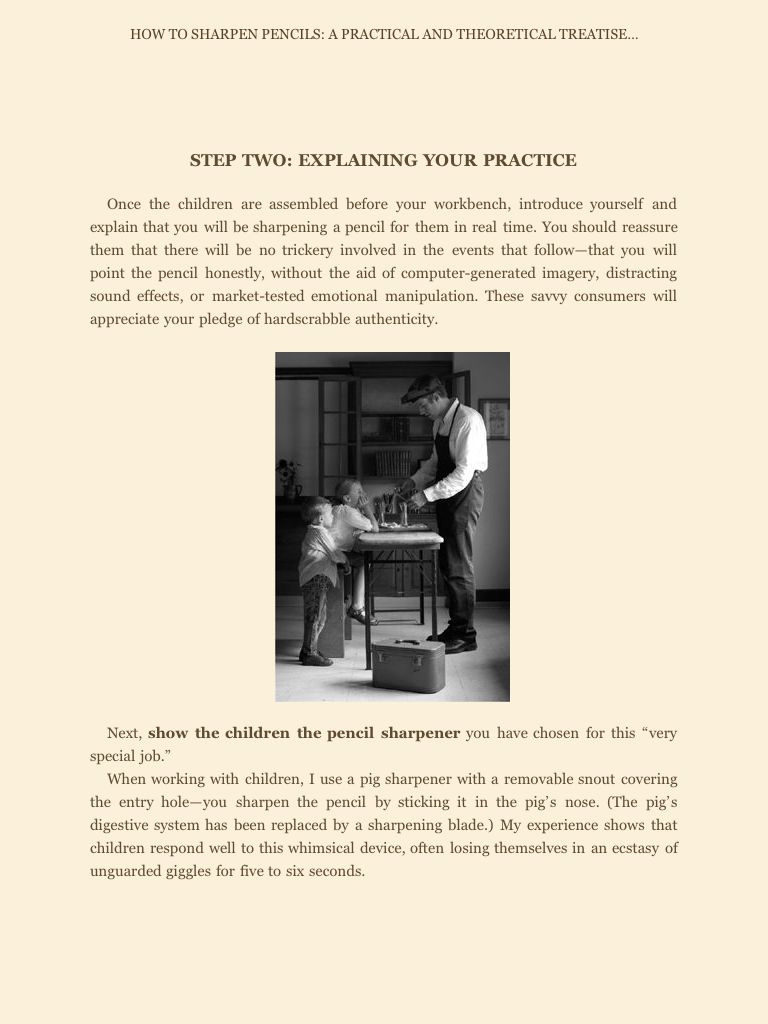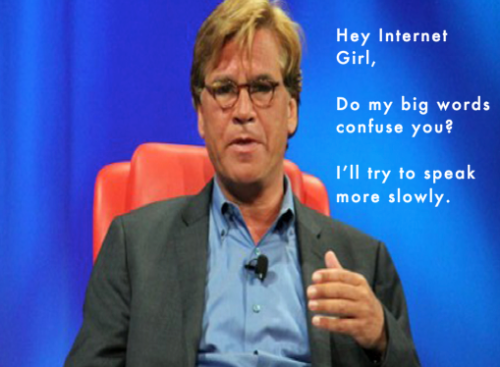Wow. Tony Abbott. Here’s a pearler of a quote from a radio interview yesterday, where admittedly, Abbott was responding to a gibe about his asylum seeker policies being “unChristian”…
Now. Before we get into the myriad problems with this statement coming from a politician in a heated policy debate, I want to be a little sympathetic to what he’s trying to say… it’s a tragedy that genuine asylum seekers waiting in camps around the world obeying due process are missing out because some people engage in dangerous and expensive people smuggling. In an ideal world there’d be no need for people to seek refuge, but in our fallen world where bad stuff happens this sort of displacement is nothing new – it’s been happening since at least Exodus.
Whoops. I started on the theological problems already.
Every aspect of Abbott’s statement is problematic. He would have been better off copping the gibe on the chin or talking about the people trying to obey due process without even mentioning the people jumping on boats.
This makes a complex ethical question into an absolute question of morality – I’m not sure you can argue that genuine asylum seekers have done the wrong thing by seeking asylum, and 97% of people who seek asylum in Australia, after arriving by boat, are found to be genuine refugees… (END UPDATE).
But ignoring the elephant in the room, that most boat people are coming from countries that aren’t exactly known for fostering significant Christian populations (though some refugees are Christians fleeing persecution) – and thus the idea that the boat people should be Christian is perhaps patently ridiculous… let’s consider for a moment that God’s people, since the very beginning, and Jesus himself, have essentially been refugees. Here are some more useful facts about boat people (PDF from the Australian Government).
Abraham left his father’s land and sought asylum in various foreign kingdoms as he headed off to the promised land.
Joseph was a refugee to Egypt.
Moses led Israel out of Egypt as asylum seeing refugees. Israel was called to care for asylum seekers/the aliens in their midst, as God does, as a result of Israel’s experience as refugees. So Deuteronomy 10:
“18 He [God] defends the cause of the fatherless and the widow, and loves the foreigner residing among you, giving them food and clothing. 19 And you are to love those who are foreigners, for you yourselves were foreigners in Egypt.”
Their failure to care for the foreigner is listed as part of the reason they’re booted out and forced into exile again in Ezekiel 22…
“6 “‘See how each of the princes of Israel who are in you uses his power to shed blood. 7 In you they have treated father and mother with contempt; in you they have oppressed the foreigner and mistreated the fatherless and the widow.”
Now, I know Australia isn’t the promised land, and isn’t meaningfully able to be spoken of as a Christian nation, but if the leader of the opposition brings Christianity into the debate, then it should at least be represented fairly… It’s not unChristian to seek asylum – it is the most Christian thing in the world as we’ve had to seek refuge for ourselves in Jesus. It’s arguable, though I don’t think we should really make anything of this, that Jesus’ family sought asylum when Herod was out to get them in Matthew 2.
“13 When they had gone, an angel of the Lord appeared to Joseph in a dream. “Get up,” he said, “take the child and his mother and escape to Egypt. Stay there until I tell you, for Herod is going to search for the child to kill him.”
And I think a fair case can be made that Jesus replaces the cities of refuge that OT people were to flee to (Joshua 20), and that turning to Jesus, as all Christians have, is the ultimate expression of seeking asylum. It’s certainly the ultimate expression of seeking citizenship somewhere better where we’re not truly entitled to on our own merit (especially for Gentiles). So this big quote from Ephesians 2…
12 remember that at that time you were separate from Christ, excluded from citizenship in Israel and foreigners to the covenants of the promise, without hope and without God in the world. 13 But now in Christ Jesus you who once were far away have been brought near by the blood of Christ.
14 For he himself is our peace, who has made the two groups one and has destroyed the barrier, the dividing wall of hostility, 15 by setting aside in his flesh the law with its commands and regulations. His purpose was to create in himself one new humanity out of the two, thus making peace, 16 and in one body to reconcile both of them to God through the cross, by which he put to death their hostility. 17 He came and preached peace to you who were far away and peace to those who were near. 18 For through him we both have access to the Father by one Spirit.
19 Consequently, you are no longer foreigners and strangers, but fellow citizens with God’s people and also members of his household, 20 built on the foundation of the apostles and prophets, with Christ Jesus himself as the chief cornerstone.
Now the comparison isn’t exact, and the issues here are referring to something different because Australia isn’t the kingdom of God – but there are two principles here that make it hard to justify the claim that urgently seeking asylum without regard to due process is unchristian. Firstly, Christians are asylum seekers, and secondly, the idea, for Christians, that our earthly citizenship of an earthly nation is something to be protected at the expense of being united with other people in Christ doesn’t really stand up to scrutiny. Christians in the early church framed their understanding of citizenship, a particularly significant concept when it came to the Roman Empire, around being aliens in the empire – sojourners, who loved other outsiders accordingly – loving foreigners wasn’t exclusive to Israel when they occupied the physical kingdom of Israel with some power. We seem to have lost that vibe a little bit as Christianity became a dominant socio-political force – but now we’re starting to be part of a post-Christian society we need to start being informed by this as a category again, and caring for our fellow aliens.
If we’re taking a “Christian” approach to the chance to show love to the poor and oppressed people who don’t know Jesus then we’re going to want to welcome and love them. That’d be my thinking anyway…
The onus isn’t really on the asylum seekers to act as Christians when they’re approaching a country – unless they’re claiming to be Christians, in which case the decision to jump the queue is something they’ll have to wrestle with personally – the onus is on the country receiving them, if they claim in any sense to be Christian (which Abbott does), to be receiving the refugees in a Christian way. This is where Abbott went really wrong. The question was legitimate. Because caring for refugees, or any oppressed people, or any people, is a definite outworking of following Jesus.
Interestingly, Jesus echoes the Deuteronomic principle that people who are trying to be like God should be caring for the oppressed, he framed his understanding of his mission this way (quoting Isaiah):
16 He went to Nazareth, where he had been brought up, and on the Sabbath day he went into the synagogue, as was his custom. He stood up to read, 17 and the scroll of the prophet Isaiah was handed to him. Unrolling it, he found the place where it is written:
18 “The Spirit of the Lord is on me,
because he has anointed me
to proclaim good news to the poor.
He has sent me to proclaim freedom for the prisoners
and recovery of sight for the blind,
to set the oppressed free,
19 to proclaim the year of the Lord’s favor.”
20 Then he rolled up the scroll, gave it back to the attendant and sat down. The eyes of everyone in the synagogue were fastened on him. 21 He began by saying to them, “Today this scripture is fulfilled in your hearing.”
So. You might be thinking. It’s all well and good for Jesus to say this and apply it to his own ministry, if he is this refuge for the oppressed – but it doesn’t follow that it is “Christian” to love refugees.
You would be wrong.
Jesus rebukes the Pharisees in Luke 11 on the basis that they care for their religiosity but not for the poor.
“39 Then the Lord said to him, “Now then, you Pharisees clean the outside of the cup and dish, but inside you are full of greed and wickedness. 40 You foolish people! Did not the one who made the outside make the inside also? 41 But now as for what is inside you—be generous to the poor, and everything will be clean for you.42 “Woe to you Pharisees, because you give God a tenth of your mint, rue and all other kinds of garden herbs, but you neglect justice and the love of God. You should have practiced the latter without leaving the former undone.”
Then, when he’s talking about how people who want to follow him should approach social conventions and the hosting of status building banquets, he makes it clear that his concern is on provision for the poor (Luke 14)…
“12 Then Jesus said to his host, “When you give a luncheon or dinner, do not invite your friends, your brothers or sisters, your relatives, or your rich neighbors; if you do, they may invite you back and so you will be repaid. 13 But when you give a banquet, invite the poor, the crippled, the lame, the blind, 14 and you will be blessed. Although they cannot repay you, you will be repaid at the resurrection of the righteous.”
Then, when he’s talking about how his followers, Christians, will be distinguished from people not following him (unchristians?), he makes it clear that this is one of the markers of a Christian, someone whose thinking has been truly transformed by the Spirit as they follow Jesus.
34 “Then the King will say to those on his right, ‘Come, you who are blessed by my Father; take your inheritance, the kingdom prepared for you since the creation of the world. 35 For I was hungry and you gave me something to eat, I was thirsty and you gave me something to drink, I was a stranger and you invited me in, 36 I needed clothes and you clothed me, I was sick and you looked after me, I was in prison and you came to visit me.’37 “Then the righteous will answer him, ‘Lord, when did we see you hungry and feed you, or thirsty and give you something to drink? 38 When did we see you a stranger and invite you in, or needing clothes and clothe you? 39 When did we see you sick or in prison and go to visit you?’40 “The King will reply, ‘Truly I tell you, whatever you did for one of the least of these brothers and sisters of mine, you did for me.’”
James follows suit.
“27 Religion that God our Father accepts as pure and faultless is this: to look after orphans and widows in their distress and to keep oneself from being polluted by the world.”
It’s pretty hard to maintain anything that looks like the policies of either of Australia’s major parties on “boat people” if you’re trying to take a Christian approach – the justification for taking a Christian approach is obviously quesitonable for the same reason that introducing any policy into a secular democracy for solely theological reasons is questionable. But we have every right to speak in the democratic process, and you’d hope such contributions would be framed by our theological reality, more than by political expediency, you’d hope we’d be the most compassionate voice out there, and call for something more than what our major parties are happy to settle for… and yet, when given the opportunity to make a statement following Abbott’s theological faux pas, here’s what Lyle Shelton from the ACL says:
“It is unfortunate that the term ‘Christian’ has been co-opted in the debate… I don’t want to say what is Christian and what is not, but it is important that our policies give people languishing in camps a fair go. We have to stop the people smugglers’ business model. We have to stop people perishing at sea.”
Could this organisation stoop any lower in its bid to represent as broad a church as possible? How bout defining Christian as “somebody who follows Jesus and holds to something representing the historic confessions of the church”? It’s not that hard. And this sort of waftiness is precisely why the ACL can’t claim to speak for anybody in particular. It’s also an issue that needs the voice of Christians to offer some compassionate clarity.
It’s unfortunate Christianity has been misrepresented in the debate, but it’s more unfortunate we had to be co-opted, and haven’t been on the front line from the beginning (which notable exceptions have been – like Melbourne’s Crossway Church, which offered to care for unaccompanied minors who were at risk of being deported).
People who follow Jesus are refugees. People who follow Jesus are to love the oppressed, including refugees. This has to be the basis of a “Christian” response to the tragedy that leads people to flee their countries, and the tragedy that many of those people are turning to criminals and jumping on dangerous boats.

















